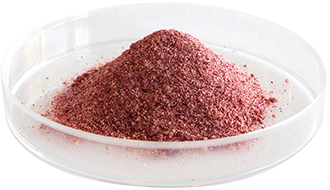WHAT IS RESPIRATORY IMMUNE BALANCE?
Respiratory immune balance is the ability of the airways and lungs to return to a normal healthy state quickly and completely after inflammation. Inflammation is the natural process of neutralising and removing dangerous foreign particles and pathogens. Immune balance relies on checkpoints in specific immune cells that recruit and activate other immune cells to fight when needed; reduce these immune cell numbers when finished; and reorient immune cell activity to heal and repair damaged tissue after the threat has been removed.
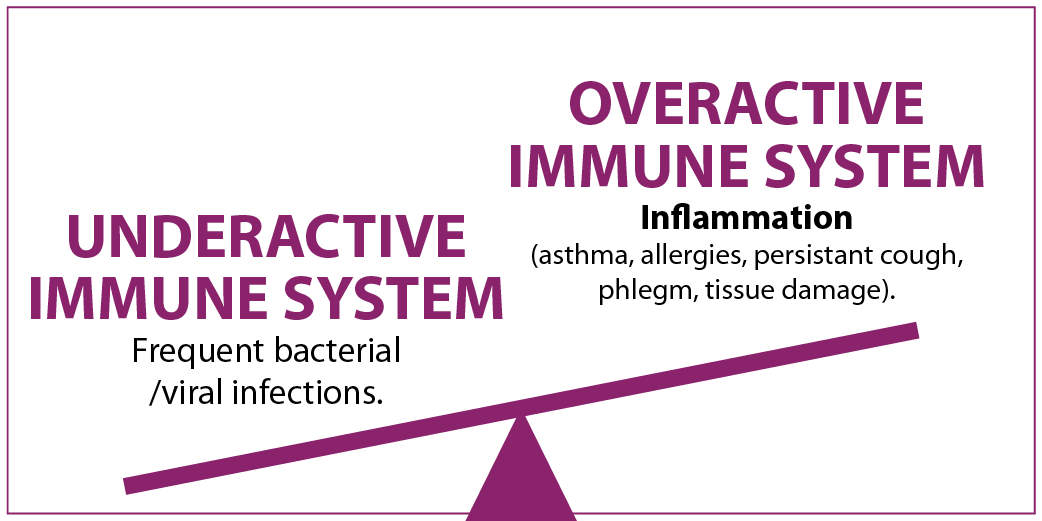

“Our lungs face environmental stressors such as pollution, allergens, and pathogens everyday. Supporting our respiratory immune system to respond in proportion to actual threats, quickly restore calm and return to balance the rest of the time is key to ensuring we can breathe easily through clear airways.”
Why does it take so long to recover from respiratory infections?
Typical respiratory infections are short-lived, with the average rhinovirus infection lasting approximately 72 hours.
Lingering Symptoms:
However, symptoms of inflammation such as runny nose, mucus production, cough, and shortness of breath can persist long after, reducing productivity and limiting quality of life. Because macrophages are so sensitive to the environment, which often carries additional stressors such as dust, pollution, and allergens, some macrophages may not seamlessly progress through all the activation states to resolution of inflammation, leading to continued inflammation and symptoms of healing.
The immune system may require additional anti-inflammatory cues from diet, and macrophages may need additional prompting from bioactive molecules to progress through activation states until the immune system has calmed to its normal baseline level of alertness and activity.

Why do we care:
Respiratory infections impact everyone. Even the most minor infections and their resulting inflammation are inconvenient and reduce productivity and quality of life, often for an extended period of time because inflammation can last much longer than the infection itself. More severe respiratory infections that overwhelm the immune system contribute to ___ deaths annually, and many more lead to chronic respiratory disease onset because of immune dysregulation and uncontrolled, inappropriate inflammation.
How can BerriQi help?
BerriQi helps to move the immune system from fight mode into healing mode and further resolve symptoms of inflammation. This reduces the severity of symptoms, shortens the time of sickness, and prevents long term damage.
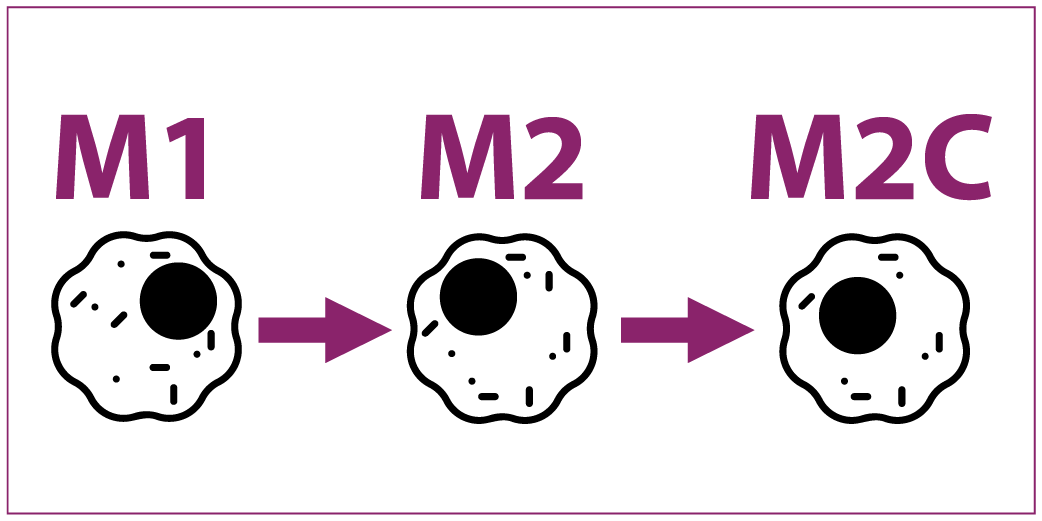
Why is pollution so dangerous?
The smaller the air pollutant the more dangerous it is to human health. High levels of particulate matter smaller than approximately 2.5 micrometers (PM2.5) are associated with poor health outcomes and many of the leading causes of death. At this microscopic size they are small enough to infiltrate deep into our lung tissue and enter our bloodstream. In our lungs they can cause ongoing inappropriate inflammation, with this chronic long-term inflammation causing scarring and making breathing more difficult. Once in our bloodstream, PM2.5 can cause further inflammation and promote plaque formation – thereby increasing blood pressure and increasing risk of stroke.

Why do we care? The World Health Organisation estimates that 99% of the global population breathes air containing levels of pollutants exceeding healthy limits, with at least 80% of the global population living in high pollution environments. Air pollution is one of the leading risk factors for death, attributing to 11.65% of deaths globally.
What happens when fine particles get into your lungs?
• When you live in a city with air pollution, air containing oxygen and fine particles travels down the trachea (windpipe) and through the bronchiole tubes to the air sacs.
• The fine particles lodge in the air sacs, causing irritation. Eventually the air sacs become thick, stiff and scarred from inflammation. The lungs harden and don’t inflate easily.
• Breathing becomes difficult and uncomfortable. You feel breathless, weak and tired.
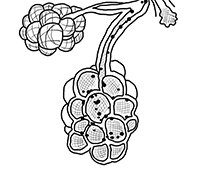
How can BerriQi help?
BerriQi helps to support the lungs to repair the inflammatory damage caused by particulates. BerriQi helps people living in high pollution environments take bigger deeper breaths through clear airways, while preventing long term damage and reducing risk.

How does BerriQi restore respiratory immune balance?
BerriQi contains high concentrations of bioactive polyphenols and anthocyanins which have broad antioxidant and anti-inflammatory effects, as well as more specific effects on alveolar macrophages that leads to reduced mucus production and reduced collagen in the interstitial space where gasses are exchanged.
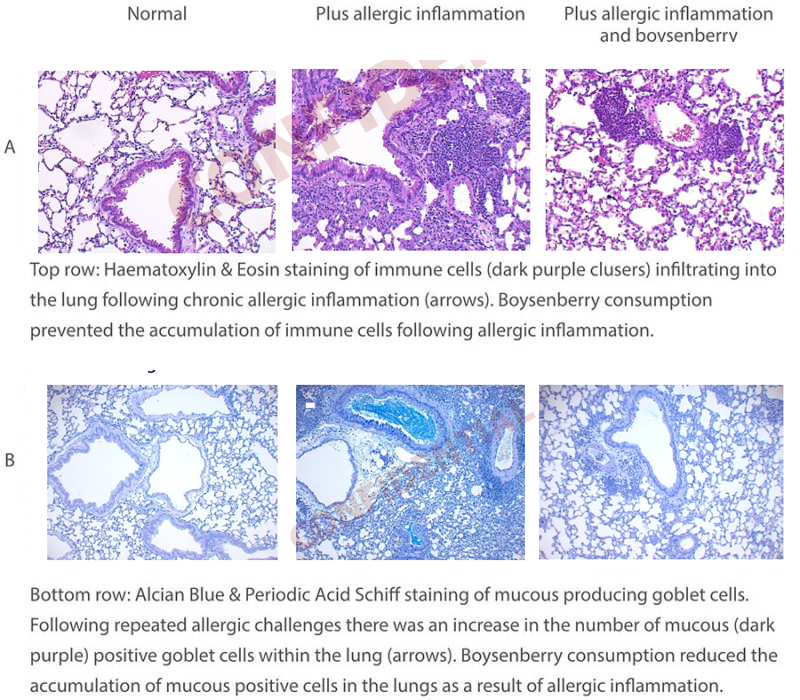





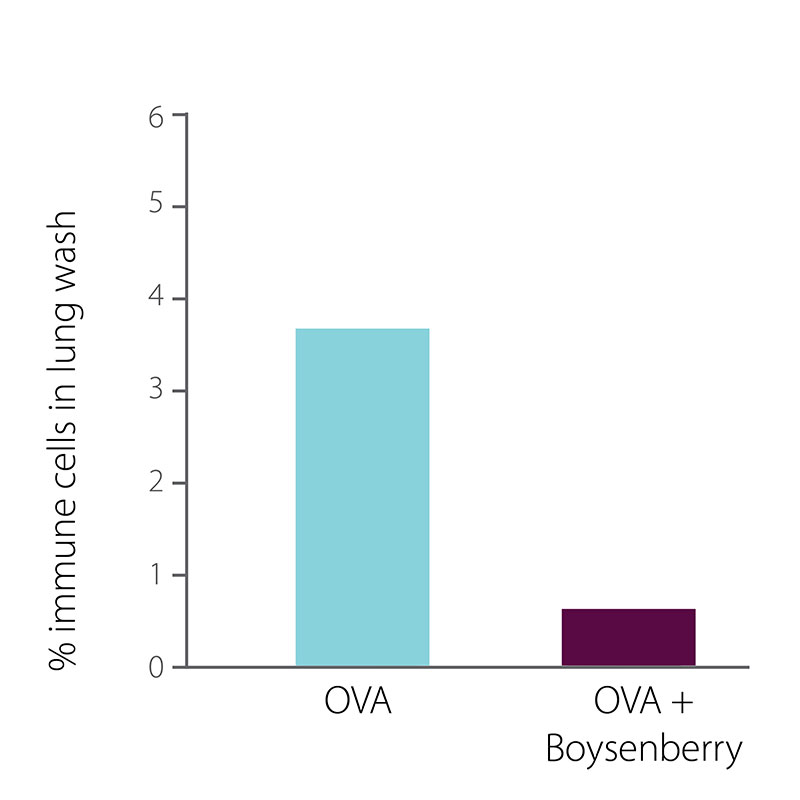
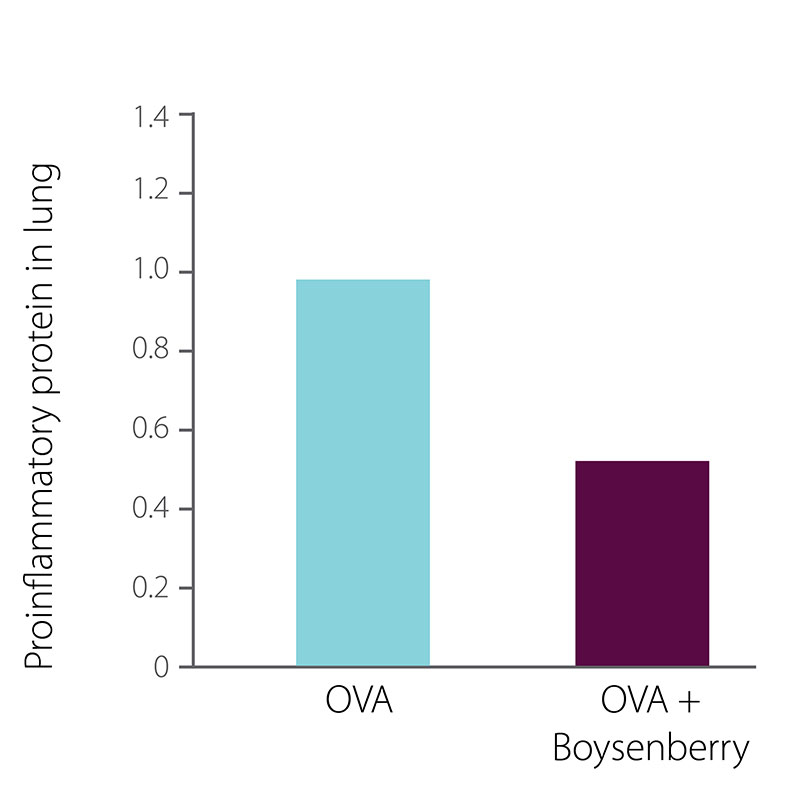
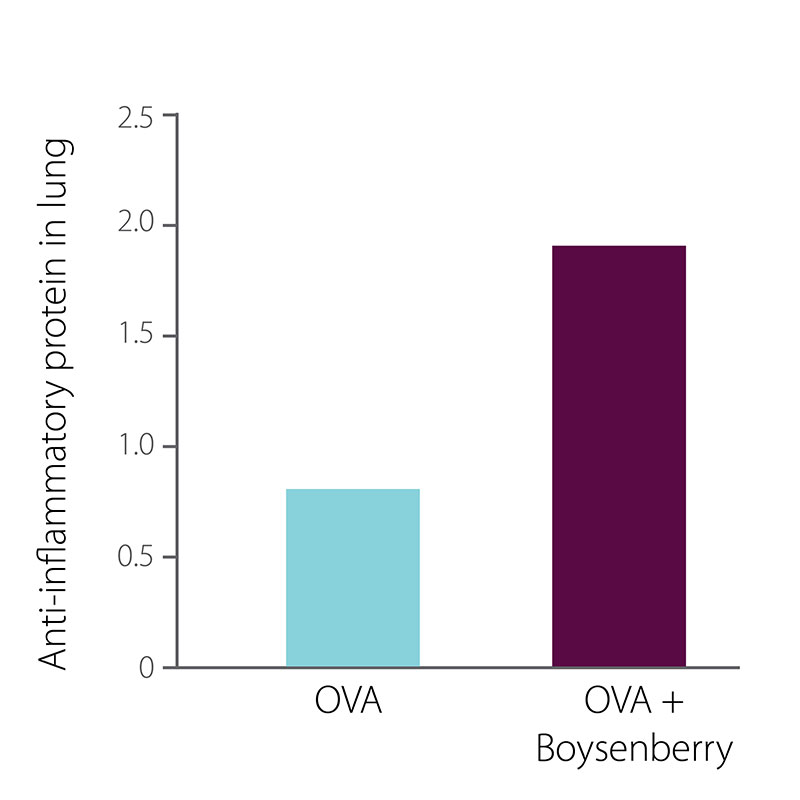

“Boysenberry is one fruit that’s been shown in preclinical models to have positive effects on lung health.”
What are polyphenols and how do they help protect lungs?
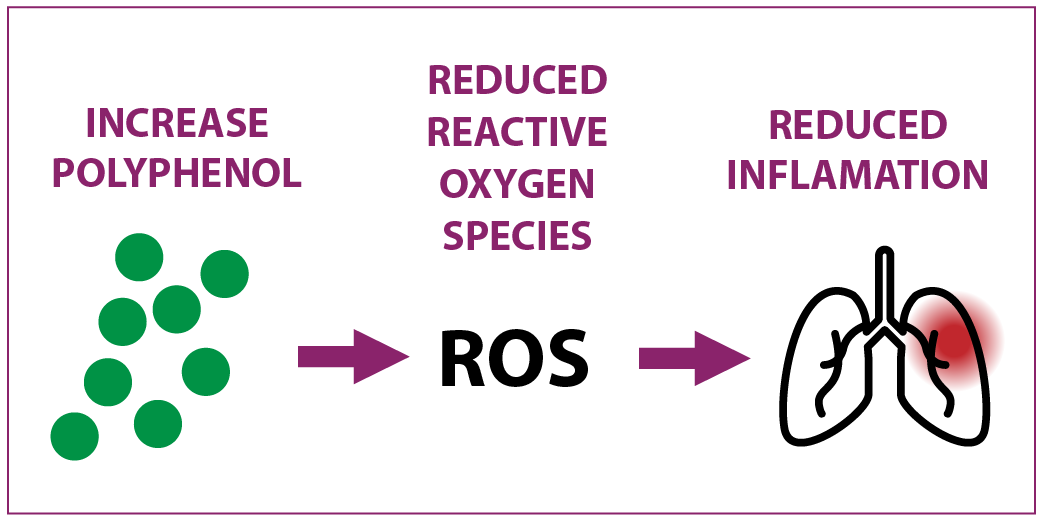
Polyphenols are the largest class of plant bioactive compounds. Nearly all polyphenols have antioxidant activity, thanks to their chemical structure that allows them to neutralise reactive oxygen species before they can damage human cells. Most classes of polyphenols are also anti-inflammatory, meaning they have a chemical structure that signals immune cells, triggering the reduction of pro-inflammatory cytokines that recruit and activate more immune cells, and increase the expression of anti-inflammatory cytokines which deactivate immune cells.
What are anthocyanins and how do they help protect and repair lungs?
Anthocyanins are a class of polyphenols known for their distinctive colour that range from purple to pink to red.
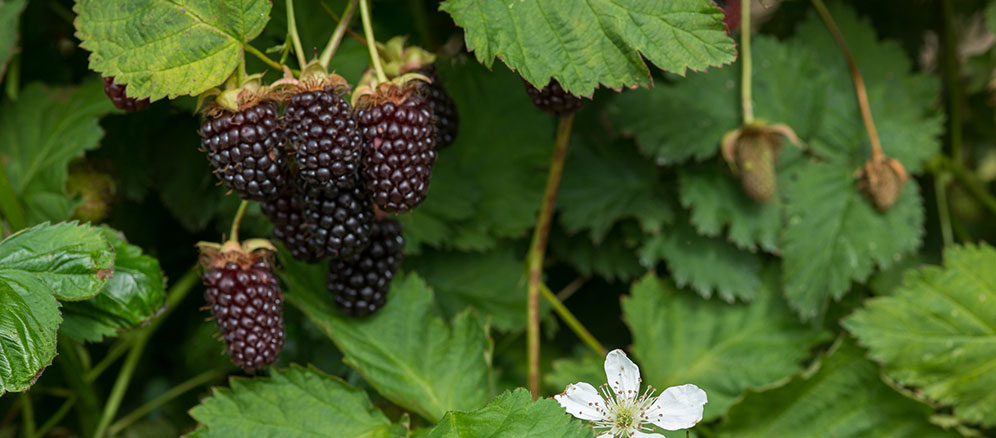
Berries produce anthocyanins in the final stages of ripening. Berries grown in New Zealand produce nearly 30% more anthocyanins due to increased UV intensity. Over 600 distinct structures of anthocyanins have been identified and characterised.
While all anthocyanins are potent bioactives, not all structures of anthocyanins have the same type of bioactivity. The specific type of anthocyanin that Boysenberries produce have the unique ability to bind to a receptor in macrophages that triggers a signalling cascade altering the activity of the macrophage.
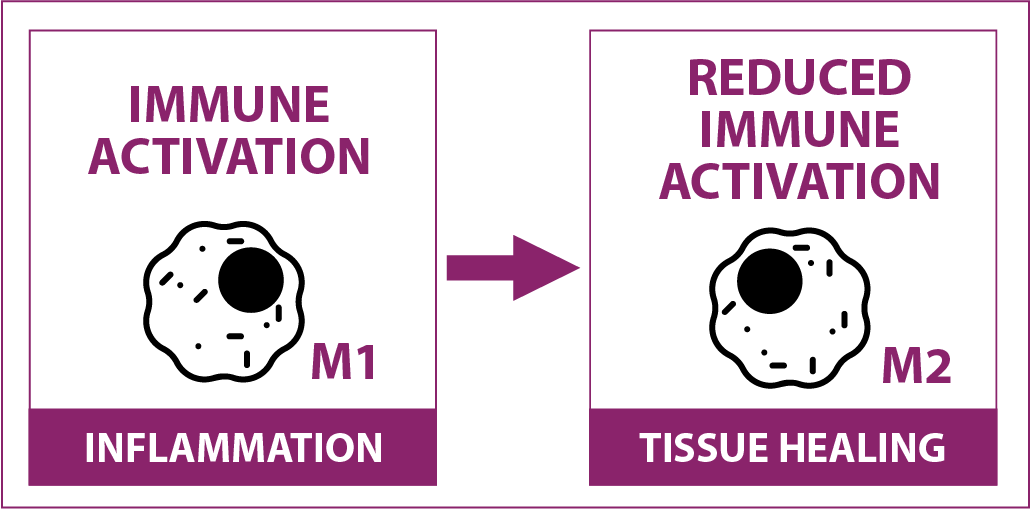
The macrophage activation state progression from M1 to M2 reduces inflammation due to reduced immune cell recruitment. In this state, macrophages promote healing by prompting collagen production to support and protect damaged cells while they repair and regenerate.
When the anthocyanins in BerriQi prompt the macrophage activation state to progress from M2 to M2C, several molecular switches are flipped. Amongst these are:
– MMP9 is turned off: Matrix Metalloproteinase-9 refers to a gene that codes for a proteinase that directly breaks down extracellular matrices such as abnormal collagen.
– TIMP1 is turned off: Tissue Inhibitor Metalloprotease 1 inhibits MMP9 activity and promotes increased collagen deposition.
Together, these molecular switches allow for the breakdown of collagen that was deposited for short-term support. This collagen breakdown restores stretch, increases lung capacity, and improves gas exchange between the air and the blood stream.
BerriQi provides potent respiratory immune support

immune support


over-production

the lung


phlegm




